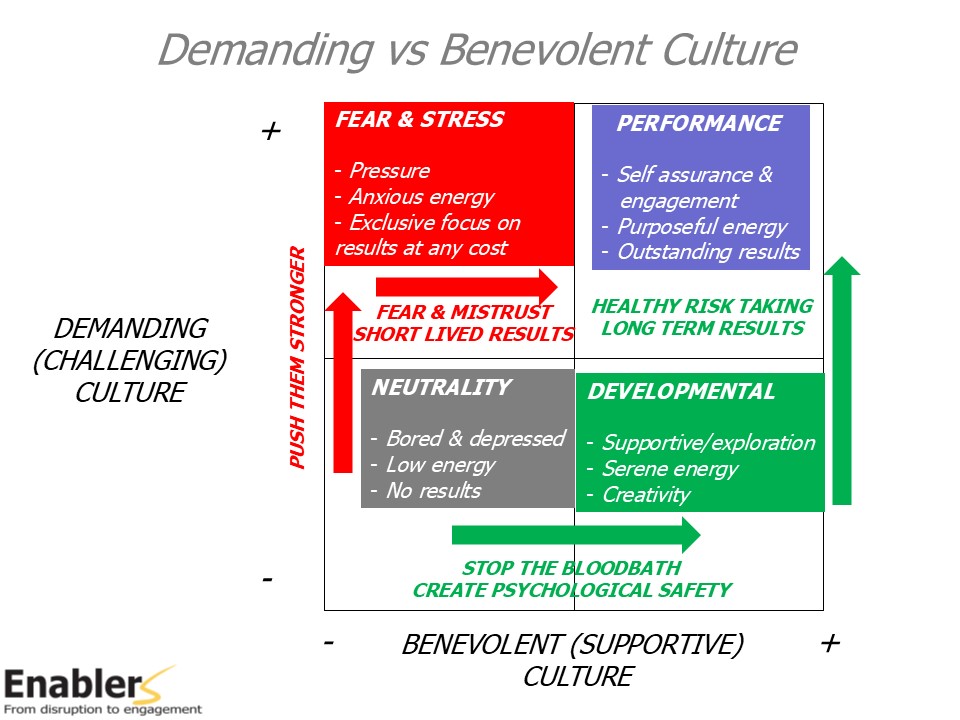This past week-end (after another 5-2 victory), Fabio Celestini’s FC Basel won the title of champion 2025 in the Swiss Football Championship! When pressed by a journalist, about the reasons why Basel won, Fabio explained that tactics and skills weren’t the reason, but working on mental and emotions were at the ground of their success… Pressing on win… win… win is counterproductive so, he focused on why and what winning meant…
I have a huge respect for Fabio, for his humanist curiosity, sharp intelligence and trademark strong character. We met some years ago, through one of his staff members and connected when I explained that I wasn’t interested in listening to his stories and bring them back to business, (as consultants generally do, using sports as a metaphor for business), but firmly believed that football coaches had a lot to learn about how you, business leaders, deal with your own prima donnas, team tensions, impatient shareholders or bosses, pressure and stress.
So what did Fabio learn from you all and what can he teach us in return?
Use the levers of Support then Challenge, in that order!
Clubs usually hire a new coach due to the lack of results of the previous one. The team is dysfunctional, its stars are at odd with each other, the fans desert the stands and the shareholders want quick results. So most of the new coaches, encouraged (if not threatened) by the direction will take “the red journey” with their team: kick asses, scream louder, make them sweat harder, execute a few for the example (high Challenge/low Support). Some get results relatively quickly, but the compliance, driven by fear, that they obtain usually fails to yield long term results.
A coach like Fabio, will choose the “green journey”, demanding an intelligent and long term minded visionary CEO. He will re-establish Psychological Safety, a sense of Teamship, heal the wounds and construct a solid and self-confident basis (high Support/low Challenge). Once this step is reached, players by themselves will become more demanding amongst themselves, taking calculated risk, playing seamlessly and the team will meet success.
 Source: Engaging Leadership -2009- D. Marlier & C. Parker
Source: Engaging Leadership -2009- D. Marlier & C. Parker
Create a culture of Psychological Safety
Fabio was very interested by Google’s Aristotle Project and the discovery that most of its high performance teams attributed their results to the Psychological Safety that was created by their leaders. Rather than exclusively relying on long and sometimes threatening “video debriefs of the previous game” sessions, he started to install dialogue and feedback amongst the players, coached and overviewed by his staff and himself. Players started to consider what conditions they should create to enable their peers to do and be their best. That became very visible on the pitch, with audacity, playfulness, risk taking… friendship and pleasure being very visible amongst the actors…
Leave no one behind
I have occasionally been surprised by the choices of players made by the coach. Once that I asked him why he would, each time, use the maximum reserve players he was allowed to, he replied: “I don’t want to let a “reserve player mentality” sneak in. Everyone should be ready anytime to take the lead and jump-in”. It reminded me of my mentor in this profession who used to say: “I let you join this program as a spectator only once. After that, my expectation is for your to be ready to take over at anytime, should I be victim of a seizure”… I was ready and fully engaged every time after that! Fabio is aware that being cut-off, ignored and sitting on the bench is the worse thing for a professional. He does his best to keep everyone included, feeling part of the community!
Be able to rely on emotions when this makes perfect, rational sense
The nowadays highly popular psychometric MBTI (a psychometric based on the works of psychiatrist and psychoanalyst, Carl Jung) explains, amongst others, that two typologies decide and are convinced in different ways: The Thinking preference (T) will prefer to remain distant from an overemotional setting and use objective, unbiased and rational criteria to take decisions. Intellectual Integrity matters to them. The Feeling preference (F) need emotions, passion and empathy. They will tend to be convinced by a passionate plea more than by a detached and intellectually brilliant speech. Impact on people matters to them. It is useless to try and emotionally convince a T preference to become more emotional. But, if they are intellectually convinced that it is integer and professional to develop their ability to access and deal with emotions, they excel at it. It is an important thing to keep in mind for Business coaches. And Fabio has a strong T preference…
Strategically adopt the Adrian Slywotzky belief: Keep competition anxiously guessing about your next move
Fabio also connected well with the theories about Complex Adaptive Systems and applies them to football. A quick look at his personal website provides a clear picture of what he means and why he does it. He read General Carl von Clausewitz book “On war”, which explores the complexities of military strategy and the adaptive nature of warfare. The book’s ideas about the dynamic, unpredictable and interconnected aspects of warfare are a practical application of what became later known as Complex Adaptive Systems theories to an army context. Fabio is working on its football application. How does that show?
- The maturity of the team: When the opponents don’t play as per what the plan was, his players adapt as any intelligent organisation (also called “organism”) would
- The team is driven by three things (as per Meg Wheatley’s research shows): a) a strongly lived and shared purpose and set of values, b) an open and regular system of feedback, c) a culture that encourages the players to be relational more than transactional in their way of connecting to each other.
- Like those flocks of birds or schools of fishes, Fabio tries to have his team being unpredictable on the pitch, forcing the opponents in a defensive, anxiously guessing what the next move will be. It is exhausting for the adversaries and liberating for his players.
Succeeding through hard work, resilience and patience
This always is the lesson I take away, after a discussion with Fabio… All our thoughts, models, theories and wonderful intentions will end-up nowhere, if we do not work hard, show resilience and… patience in implementing them. I practise it so imperfectly but try and remember it every morning prior to dive into my Business mission.
I will always have time for someone like Fabio Celestini (and hope he will have time for me…) who rapidly captures the main message of any theory we talk about and who, more importantly, does his best to test and apply it, when it makes sense to his instinct and intuition.
This is his gift he had back for us… These ideas really work and led his team to the 2025 title.
Enjoy your leadership journey!



Fabio would be interested in being the coach of my favorite team: Santos FC!
😉 Thank you, dear Gerson… He certainly would do good to many teams in Europe and Brasil, with his work ethics and human intelligence…